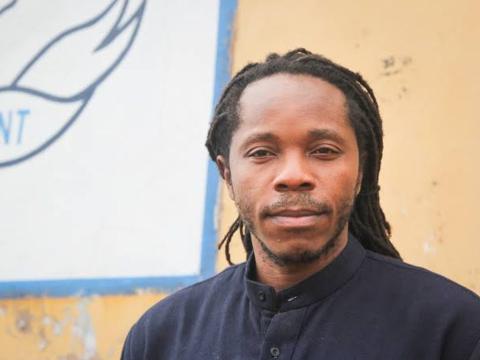By Nasratu Kargbo
Following heavy persuasion from some members of Parliament and the Minister of Basic and Senior Secondary Education (MBSSE) Dr. David Moinina Sengeh, the Acting Speaker of Parliament Segepoh Solomon Thomas has legally passed into law the ban on corporal punishment in schools but was quick to state that if it does not work, it will be amended.
Segepoh who was of the opinion that the punishment was necessary to serve as a way of disciplining children was on the 24th of April 2023 persuaded to change his mind, and he then asked other MPs that they give it a try and see whether it works.
The Acting Speaker had earlier advocated that corporal punishment not be totally banned, suggesting they could find ways of limiting this form of punishment instead of totaling banning it.
He earlier explained that in the West where such laws are in existence, children speak to their parents in any manner they deemed fit, further stating that they went through corporal punishment which is said to be part of the African culture, and ended up being disciplined.
Some MPs were against the absolute removal of corporal punishment, arguing it can be done under the supervision of the head teacher or a senior teacher.
Those who were of the notion that the punishment be totally banned in schools stated that there are no statistics that can show that corporal punishment has helped children turn out great, but is rather a form of degrading school children.
They mentioned that there are other forms of discipline highlighted in the bill.
The Minister of MBSSE Dr. David Moinina Sengeh stated that there have been several studies that indicate that corporal punishment is worse for society. He further stated that the Truth and Reconciliation Commission had requested that the nation weed out such forms of punishment from schools for the sake of peace, noting that it was linked to the violence that occurred.
He said that in schools where the act has been banned, children behave better, whereas, in schools where teachers are given the power to beat children, it discourages the kids from going to school.
Sengeh mentioned that in Clause 74 other forms of punishment have been provided, stating that suspension, and expulsion amongst others can be used by the school administration to discipline the children.
He believes that the measures in Clauses 74 and 75 are enough to ensure that the children have discipline and morality.
Clause 74 of the bill speaks of indiscipline, which he says constitutes a violation of the school’s regulations.
Clause 75 (1) of the bill reads “The head of a school may, after a fair hearing by a competent body suspend a pupil or teacher from attending the school for a period not exceeding 2 weeks”. Other paragraphs explained the procedures for suspension.
Copyright © 2023 Politico (03/05/23)








